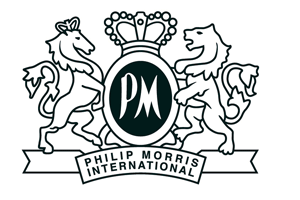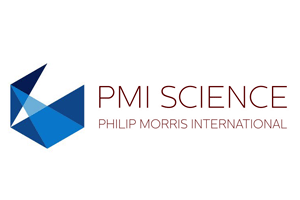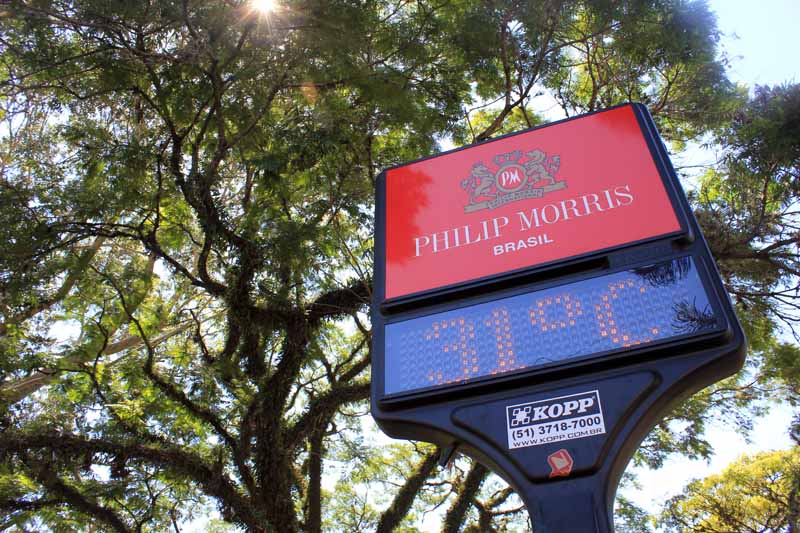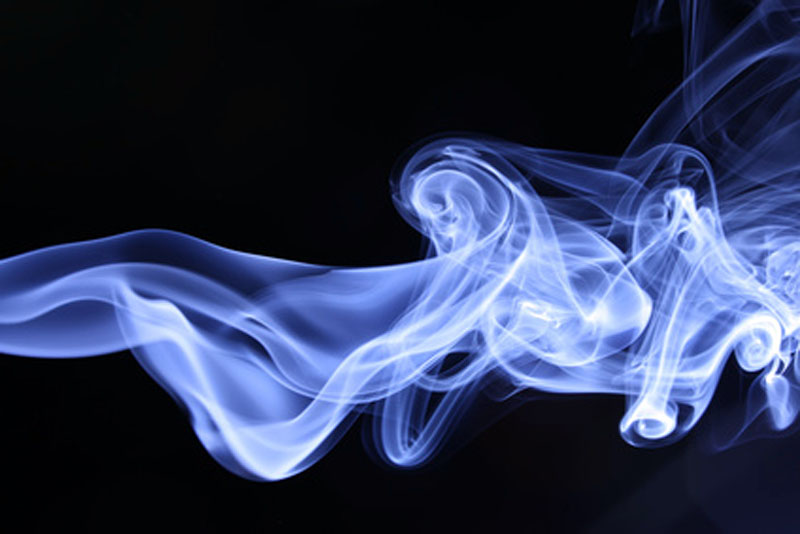Philip Morris International’s cigarette shipment volume during the first quarter of 2018, at 164,280 million, was down by 5.3 percent on that of the first quarter of last year, 173,552 million. The first-quarter-2017 figure was down by 11.3 percent on that of the first quarter of 2016, 196,041 million.
Volume increased in PMI’s South and Southeast Asia region by 6.1 percent to 40,218 million. But it fell in each of its other five regions (PMI now divides its operations into six regions, rather than the four used previously): by 6.7 percent to 39,671 million in the EU; by 10.4 percent to 22,039 million in Eastern Europe; by 8.5 percent to 29,248 million in the Middle East and Africa; by 18.3 percent to 14,091 million in East Asia and Australia; and by 1.5 percent to 19,013 million in Latin America and Canada.
The company reported an increase in its shipment sales of heated-tobacco units from 4,435 million during the first quarter of 2017 to 9,566 million during the first quarter of 2018. Sales of these products have risen hugely since the first quarter of 2016, when they stood at 4,435 million.
Shipments of heated tobacco products were up from 184 million to 928 million in the EU; from 54 million to 564 million in Easter Europe; from 51 million to 709 million in the Middle East and Africa; from 4,145 million to 7,342 million in East Asia and Australia, and from one million to 23 million in Latin America and Canada.
Overall, shipment volumes of cigarettes and heated tobacco products taken together were down by 2.3 percent. They were down by 5.0 percent in the EU; down by 8.3 percent in Eastern Europe; down by 6.5 percent in the Middle East and Africa; up by 6.1 percent in South and Southeast Asia; up by 0.2 percent in East Asia and Australia; and down by 1.4 percent in Latin America and Canada.
PMI said that its total shipment volume had decreased by 2.3 percent principally due to its performance in the EU, which reflected lower cigarette shipment volume mainly in France, Germany and Poland; in Eastern Europe, which reflected lower cigarette shipment volume mainly in Russia and Ukraine; and in the Middle East and Africa, which reflected lower cigarette shipment volume mainly in the GCC, notably Saudi Arabia, and North Africa, notably Algeria, partly offset by higher cigarette shipment volume mainly in Turkey and PMI Duty Free.
These factors had been partly offset by its performance in South and Southeast Asia, which had reflected higher cigarette shipment volume, driven mainly by volumes in Pakistan and Thailand, partly offset by that in Indonesia; and in East Asia & Australia, which had reflected higher heated tobacco unit shipment volume, driven by volumes in Japan and Korea.
PMI added that, excluding the net unfavorable impact of total estimated distributor inventory movements of about 2.1 billion units, driven mainly by Japan and Saudi Arabia, its total shipment volume had decreased by 1.1 percent.
PMI said that its reported diluted earnings per share, at $1.00, were down by $0.02 or 2.0 percent on those of the first quarter of 2017.
Adjusted diluted earnings per share, at $1.00, were up by $0.02 or 2.0 percent.
Net revenues of $6.9 billion were up by 13.7.
Operating income of $2.4 billion was up by 0.4, while adjusted operating income of $2.4 billion was up by 0.4 percent.
“We began the year with strong, currency-neutral net revenue growth of more than eight percent in the quarter, driven by higher volume for heated tobacco units and IQOS devices coupled with higher pricing from our combustible product portfolio,” said CEO André Calantzopoulos (pictured).
“Our increased full-year EPS guidance reflects the benefit of a lower effective tax rate and incorporates, at this early stage in the year, some caution regarding: on-going volume challenges in the GCC; the pricing environment in Russia; and less-rapid-than-initially-projected growth in sales of devices to consumers in Japan in the first quarter, as we are now reaching more conservative adult smoker segments that may require, at least at first, slightly more time for adoption. Even if this temporary dynamic in Japan persists, we remain on track to double our worldwide in-market sales of heated tobacco units compared to 2017.”
“We are confident in our ability to deliver strong results this year and remain steadfast in our commitment to generously reward our shareholders.”
Tag: Switzerland

PMI’s volumes falter

COP8 meeting in October
The eighth session of the Conference of the Parties (COP8) to the World Health Organization’s Framework Convention on Tobacco Control (FCTC) will be held in Geneva, Switzerland on October 1-6.
And, according to a note posted on an FCTC website, if, by July 2, 40 Parties to the treaty became Parties to the Protocol to Eliminate Illicit Trade in Tobacco Products, COP8 would be followed by the first session of the Meeting of the Parties (MOP1).
The note said that COP8 would bring together the 181 Parties to the Convention as well as observers: states that are not Parties to the Convention, and international intergovernmental and nongovernmental organizations.
‘The Convention Secretariat has dedicated a webpage to COP8 [http://www.who.int/fctc/cop/sessions/cop8/en/?ua=1] where the official documentations and all necessary information will be accessible for delegates and participants,’ the note said.
‘Also, joining the United Nations’ efforts to reduce paper waste, COP8 will have its own App, guaranteeing easy access to the information for delegates and participants.’
Meanwhile, the Convention Secretariat has released the Information Kit for Delegates to the Conference of the Parties [http://vivello.ch/fctc/?ua=1], which has been developed mainly to help new delegates to the COP to understand how the COP operates, and its practices and procedures.
PMI to webcast results
Philip Morris International is due to host a live audio webcast at www.pmi.com/2018Q1earnings from 09.00 Eastern Time on April 19 to discuss its 2018 first-quarter results, which will be issued about 07.00 the same day.
During the webcast, which will be in listen-only mode, CFO Martin King will discuss the results and answer questions from the investment community and news media.
The audio webcast may be accessed also on iOS or Android devices by downloading PMI’s free Investor Relations Mobile Application at www.pmi.com/irapp.
An archived copy of the webcast will be available until 17.00 on May 18 at www.pmi.com/2018Q1earnings.
The slides and script will be available also at www.pmi.com/2018Q1earnings.
More evidence on vapor
New data presented at the Society of Toxicology Annual Meeting (SOT) have demonstrated the potential risk reduction offered by switching from conventional cigarettes to two different heat-not-burn tobacco products and e-cigarettes.
A PMI Science press note issued on Wednesday said that a range of studies had investigated the toxicological impact of Philip Morris International’s Tobacco Heating System 2.2 (THS 2.2), Carbon Heated Tobacco Product 1.2 (CHTP 1.2) and prototype e-cigarette products in the context of respiratory disease, cardiovascular disease, and lung cancer using several different approaches. In each case, the aerosols produced by the alternative products were said to have resulted in significantly reduced levels of biological impact as compared to cigarette smoke (CS).
‘One six-month, multi-arm exposure study compared the effects of CS with those of the aerosol from the two heat-not-burn tobacco products THS 2.2 and CHTP 1.2 using a mouse model,’ the note said. ‘In both THS 2.2 and CHTP 1.2, tobacco is heated rather than burned, resulting in significantly reduced levels of harmful chemicals emitted and inhaled as compared with CS,’ the note said.
‘Through a systems toxicology approach, combining physiological, histological, and omics [various biology disciplines] endpoints, the study found that exposure to THS 2.2 and CHTP 1.2 aerosols had minimal adverse respiratory and cardiovascular effects in comparison to exposure to CS. The findings are in line with a previous assessment of THS 2.2, demonstrating reproducibility of the results obtained. In addition, both cessation and switching to CHTP 1.2 aerosol exposure after three months exposure to CS reversed inflammatory lung responses, halted the progression of aortic plaque growth and reduced the perturbations of biological pathways in heart tissue, to levels typically seen following exposure to fresh air alone.’
PMI Science said that another study presented at SOT had assessed lung inflammation, emphysema and the underlying molecular changes typically associated with lung cancer following up to 18 months of exposure to either CS or THS 2.2 aerosol. ‘The study used a combination of traditional toxicology endpoints as well as systems toxicology techniques including histological, transcriptomic, and proteomic analysis of the lungs,’ the note said. ‘In all endpoints, the biological impact of THS 2.2 aerosol was significantly lower than that of CS.’
Meanwhile, the company said that, in line with the principles of 21st century toxicology, PMI was developing also novel in vitro methods for toxicity testing using human cells. ‘Such models have the potential to reduce the necessity for animal testing and offer more cost-efficient and timely results, as well as a detailed understanding of the biological processes underlying toxicity,’ it said.
‘In collaboration with the Institute for In Vitro Sciences (IIVS), one study presented at the SOT evaluated the performance and reproducibility of three new in vitro assays. Six laboratories conducted comparison of the assays and found that these non-animal test systems may provide consistent human-relevant data corresponding to key events involved in respiratory disease. A further in vitro methodology using human bronchial epithelial cells was used in a study assessing the effects of THS 2.2 aerosol and CS.’
“The multi-lab comparison of these non-animal systems paves the way for more robust and meaningful strategies for toxicity testing,” said Dr. Holger Behrsing, principal scientist, IIVS. “They allow us to generate human-relevant data that will be of interest not just to industry and research scientists, but also to regulatory bodies. In order to develop these assays and ensure they reach their fullest potential, collaboration is key. Working with PMI and a range of different laboratories has allowed us to leverage expertise across the field and demonstrate the reproducibility of our findings. In the spirit of open science, we hope that this will open the door to further collaborations in the investigation, development, and validation of novel in vitro systems.”
In the assessment of three prototype e-cigarettes, biological changes following three-week’s exposure to the either the e-cigarette aerosols or CS were assessed using traditional and systems toxicology endpoints. CS exposure was found to induce biological responses associated with smoking-related diseases in the respiratory tract, while e-cigarette aerosol exposures, even at higher levels of nicotine delivery, resulted in substantially reduced molecular and microscopic changes. Two additional e-cigarette studies assessed the biological effects of flavor compounds typically added to e-cigarette liquids, demonstrating the potential to establish a scientifically substantiated list of minimally-toxic flavor ingredients.
PMI said it was leading a full-scale effort to ensure that heat-not-burn tobacco products and e-cigarettes ultimately replaced cigarettes.
Further information on PMI’s Reduced-Risk Product development and assessment program can be found at www.pmiscience.com.
PMI to make presentation
Philip Morris International is due to host at www.pmi.com/2018cagny a live audio webcast of a presentation by CEO André Calantzopoulos, COO, Jacek Olczak, and CFO Martin King at the Consumer Analyst Group of New York Conference from about 09.00 Eastern Time on February 21.
The webcast, which will be in listen-only mode, will provide live audio of the entire PMI session.
The audio webcast may be accessed also on iOS or Android devices by downloading PMI’s free Investor Relations Mobile Application at www.pmi.com/irapp.
An archived copy of the webcast will be available at www.pmi.com/2018cagny until 17.00 on March 22.
The presentation slides and script will be available also at www.pmi.com/2018cagny.
PMI to webcast results
Philip Morris International is due to host a live audio webcast at www.pmi.com/2017Q4earnings from 09.00 Eastern Time on February 8 to discuss its 2017 fourth-quarter and full-year results, which will be issued about 07.00 the same day.
During the webcast, which will be in listen-only mode, CEO André Calantzopoulos will discuss the company’s results, the outlook for 2018 and, with CFO Martin King, answer questions from the investment community and news media. The webcast will be in a listen-only mode.
The audio webcast can be accessed also on iOS or Android devices by downloading PMI’s free investor relations mobile application at www.pmi.com/irapp.
An archived copy of the webcast will be available until 17.00 on March 9 at www.pmi.com/2017Q4earnings.
Slides and script also will be available at www.pmi.com./2017Q4earnings.
Science exposed
Four scientists and researchers who worked for Philip Morris International on its iQOS program have told Reuters that while the company was able to prove that this device reduced the exposure of users to harmful substances from the exposure associated with combustible cigarettes, that didn’t necessarily mean that using the device was less likely to result in disease.
The Reuters piece, by Paritosh Bansal, Tom Lasseter, Duff Wilson and Aditya Kalra, Philip Morris’ search for a cigarette no more harmful than a cup of coffee, is at: https://www.reuters.com/article/us-tobacco-iqos-science-risk/philip-morris-search-for-a-cigarette-no-more-harmful-than-a-cup-of-coffee-idUSKBN1EE1GQ.
“Exposure is not directly linked to the risk of having a disease,” said Hans-Joerg Urban, who is said to have joined PMI’s research headquarters as a scientist in 2005 and worked at PMI until 2010 analyzing data from clinical and laboratory experiments. “The diseases are much too complicated.”
Dorothy Hatsukami, a former member of the US Food and Drug Administration’s tobacco products scientific advisory committee, agreed. “At this point, research is still too nascent to say with certainty that reduced exposure translates into reduced risk,” she said.
PMI is seeking FDA approval to market iQOS under two different standards. It has applied for approval as a device that reduces exposure to harmful substances. And it has applied on a second track with a higher bar – to get approval to market it as carrying reduced risk of tobacco-related disease.
The first option, a special provision for companies that are unable to meet the threshold of reduced risk, comes with a restriction. Consumers cannot be ‘misled into believing’ the product is less harmful than other tobacco products, FDA regulations say.
The Reuters piece reported that PMI said the lack of combustion in the case of iQOS meant vapers were exposed to far lower levels of toxic emissions than were the smokers of combustible cigarettes.
‘The ultimate result of this is reduced tobacco related harm and diseases,’ Reuters quoted the company as saying in a statement.
Meanwhile, a longer Reuters piece, by Tom Lasseter, Paritosh Bansal, Thomas Wilson, Ami Miyazaki, Duff Wilson and Aditya Kalra, reports how scientists describe what they see as problems in PMI’s experimental methods.

Dividends declared
The board of directors of Philip Morris International yesterday declared a regular quarterly dividend of $1.07 per common share, payable on January 11 to shareholders of record as of December 21.
The ex-dividend date is December 20.
Meanwhile, the Altria Group said on Wednesday that its board of directors had declared a regular quarterly dividend of $0.66 per common share, payable on January 10, to shareholders of record as of December 21.
The ex-dividend date is December 20.

Trials on track for 2018
Swiss Rail is due to experiment with smoking restrictions at some of its train stations in response to customer complaints about second-hand smoke and cigarette butts on platforms impacting on their comfort, according to a story in Le News.
The experiments are due to be run next year at five or six stations.
According to a document obtained by the newspaper NZZ, under the experiment, smoking will be banned at Basel, Nyon and Zurich Stadelhofen stations, while smoking zones will be trialled at Bellinzone, and special smoking lounges tested at Neuchâtel.
The problem of discarded cigarette butts will be monitored across the stations.
The company says that no decisions have been taken, and emphasised that no decision on a blanket ban at all stations had been made.
It seems that any change will occur from the end of next year.
The experiment is due to be announced officially on November 21.

PMI issues scientific update
The latest issue of Philip Morris International’s Scientific Update for Smoke-Free Products focuses on PMI’s scientific assessment program as it applies to its Electronically Heated Tobacco Product (EHTP).
In a press note yesterday announcing the publication of the update, Professor Manuel Peitsch, PMI’s chief scientific officer was quoted as saying that the company had developed a truly world class R&D program to assess scientifically the potential of its smoke-free products to reduce risk.
“With each progressive step of our assessment of EHTP, we have seen a significant reduction in exposure to a number of harmful chemicals and risk potential compared with cigarettes,” he said.
“Because transparency is a vital part of our program, we are making our evidence available for others to review.”
The note said the focus was on PMI’s scientific assessment program as it applied to its EHTP, referred to in the literature as the tobacco heating system (THS).
‘PMI established its multi-step assessment program applying internationally accepted scientific and quality standards along the same principles as the US Food and Drug Administration (FDA) draft guidance (2012),’ the note said.
‘The feature article outlines each step of the assessment program and summarizes key results of supporting data. Included is an overview of the more than 30 EHTP-related studies. PMI submitted this evidence to the FDA in the form of a modified risk tobacco product (MRTP) application.
‘Beyond the MRTP-related content, the Scientific Update provides an overview of the assessment to date on its smoke-free product portfolio. The issue also covers key presentations at scientific conferences. It is an important complement to PMI’s ongoing efforts to share its latest science, which include a dedicated website…
‘PMI’s extensive research and assessment program is inspired by the well-recognized practices of the pharmaceutical industry and in line with guidance of the US FDA for MRTPs. The Company today employs over 400 world-class scientists, engineers and experts who conduct rigorous research, including laboratory and clinical studies, as well as ground-breaking systems toxicology. The assessment program also includes studies on actual product use and correct understanding of product communications, as well as post-market research.’
The update is at: https://www.pmiscience.com/system/files/publications/pmi_scientific_update_november_2017.pdf.








